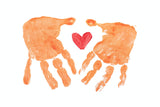
Growing up involves a series of milestones that often involve an increasing amount of independence. Some of those milestones are small in scope, like tying your own shoes for the first time. Others are large leaps, like getting your driver’s license. For parents, these milestones can be bittersweet and filled with some measure of trepidation and pride.
For allergy parents, some milestones can also come with a different layer of fear and anxiety. Let’s talk about it.
Engage Other Adults
Dropping your child off at a friend’s house and not staying for the first time can be an exciting growing-up milestone. Dropping off a child with food allergies means trusting others to help your child make good decisions regarding their allergies.
This isn’t a matter of your family limiting the number of sweets and treats and this family embracing the joy of the Oreo. This is about whether or not that treat contains your child’s allergens either directly or as part of a cross-contamination risk. It’s understanding that the dog’s favorite “cookie” contains peanut butter and maybe your child shouldn’t offer the dog a treat or be licked by the family dog after he’s had one.
This isn’t to scare you off from solo playdates. In fact, such milestones are important for a child. It is, however, a reminder, that as an allergic parent, it's important that you make sure the host parent is aware of your child’s allergens, can help your child make the right choices when necessary, and is prepared to follow your allergy action plan if necessary.
As the milestones get bigger – first sleepover, first camping trip with the Scouts, first overnight with a club or youth group – the more important it is for the adults responsible for your child’s safety be aware of their specific needs and are prepared to help your child make wise choices or respond based on your allergy action plan if necessary.
Empower Your Child
Perhaps even more important, however, is empowering your allergic child to make smart choices for themselves. There will be one constant in your child’s life as they cross milestone after milestone: themselves. Start giving your child age-appropriate responsibility for managing their own allergies from the get-go.
No, you’re not going to leave your 4 year old preschooler with the full responsibility for their food allergy management at school and playdates. But they can be given the tools to self-advocate and partner with a trusted adult.
Start with Questions
Make sure your allergic child knows it’s okay to ask questions – in fact, if it’s about confirming their safety, it’s okay to ask a lot of questions even if the adult they’re asking is starting to seem annoyed by it.
If your child is able to read, encourage them to ask to see the labels on packaged food items before accepting a snack. If they’re at a restaurant, let them know it’s okay to ask about how foods are prepared or to ask to speak to the chef.
It's Not Rude To Pass
Raise a hand if you were raised to try foods offered to you so as to not offend your host. We’re not going to unpack that as a general rule of thumb (although surely we could), but it’s safe to say that for a food allergic individual, that’s not a rule anyone should expect your child to follow. Ever.
Make sure your child knows that if not 110% sure that the food being offered is free of allergens, “No, thank you” is the right answer. It doesn’t matter if the adult offering has assured that it’s safe. If your child is not comfortable with it, no is always the right response.
And make sure the adults responsible in those settings understand this, too. Your child’s safety – both in this moment and in the future – is more important than not offending someone for turning down their culinary exploits.
Keep It Real
Let’s be honest: your teenager wants to fit in with the crowd. They want to experience the things their peers are experiencing. They might also think they’re invincible and developmentally, they lack impulse control. This can be a time of higher risk for food allergic kids.
Teens are more willing to take risks. Your child may think you’ve been overreacting (really, what teen doesn’t think they know better than mom and dad at least some of the time?). Don’t wait for your teen to be “old enough” to understand the full scope of their allergies. Be honest and clear from the start. Don’t sugarcoat things. Don’t manage it all on your own. Include your child. Be age-appropriate but honest. You don’t want to foster anxiety, but you do want to cultivate a sense of caution and awareness.
Let your child ask the allergist questions at yearly check-ups. Include them in making choices about foods they can eat, from reading labels to picking out items and asking questions. Make sure your child understands that any amount of allergen can trigger a reaction and that reaction could look like: trouble breathing, vomiting profusely, or breaking out in hives.
Make sure they know when to use their autoinjector and how. Help your child learn how to identify safe alternatives, how to order food when out, and how to self-advocate when needed.



